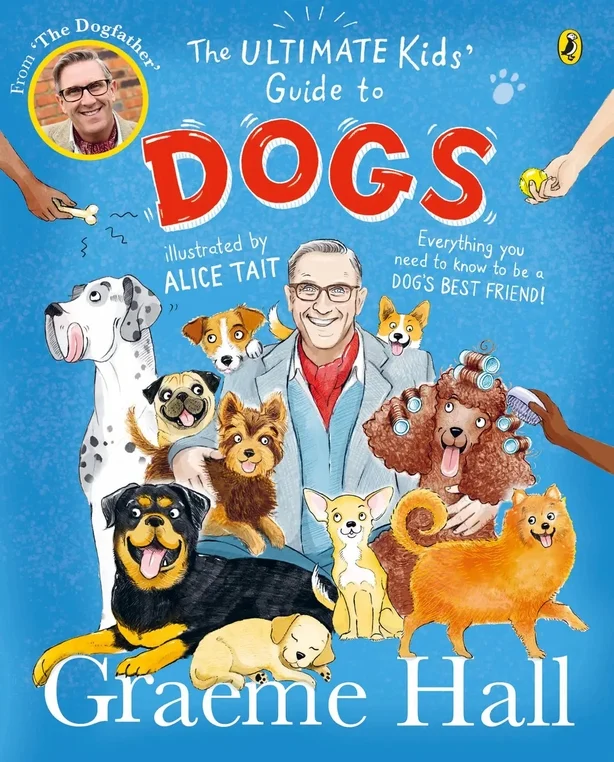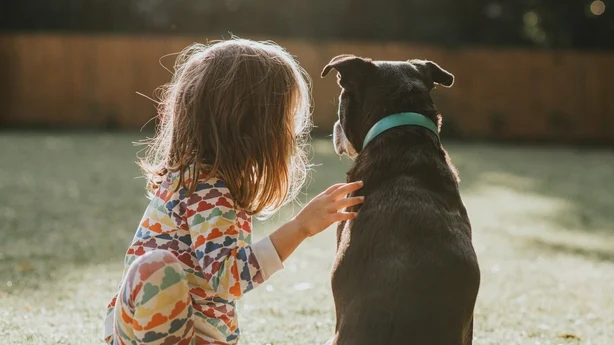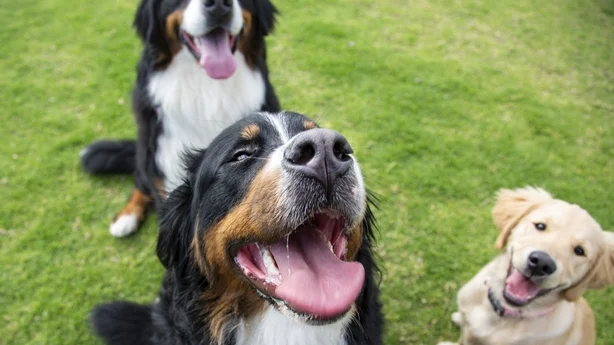Stay updated with the latest beauty tips, trends, and news from our salon experts. Our blog is your go-to source for all things beauty.
Dogs Behaving (Very) Badly presenter Graeme Hall, who didn't own a dog till he was 40, warns dogs are a huge commitment but they can truly enrich family life.
When he was a child, Graeme Hall pleaded with his mum and dad to let him have a dog. But they said "absolutely not".
So the man who is now one of the most well-known dog trainers in the country didn’t get his own dog until he was 40.
And it was only after getting that dog – a Rottweiler called Axel – that Hall started training dogs and quickly learned he had a gift for it. Less than a decade later, he became the presenter of the popular Channel 5 show, Dogs Behaving (Very) Badly.
"We didn’t have dogs as kids because my mum and dad were both working people," recalls Hall, 58. "My sister and I were constantly badgering them for a dog, and the answer was always ‘We haven’t got the time for a dog, it wouldn’t be fair because we’re not home most of the time’."

Kids pleading with their parents to let them have a dog is an age-old scenario, and Hall – who’s known as The Dogfather because of his connection with man’s best friend – says: "Lots of families end up with a dog because the kids really, really wanted one and managed to convince their parents. I’ve seen kids giving PowerPoint presentations!
"Since time immemorial, that’s been the way."
Hall, whose on-screen role is to sort out the bad behaviour of all sorts of canines, is by no means asserting that parents should necessarily give in to their children’s pleas for a family dog.
There are many important considerations before bringing a dog into your home, he stresses, and choosing, caring and being responsible for a four-legged friend are just some of the topics he discusses in his new book, The Ultimate Kids’ Guide to Dogs.
"Think about the time that it takes, because you have to walk your dog every day, you’ve got to get up and feed them, let them out for the loo. Do you have the time?" he asks.

"There’s only a finite amount of money and time that any of us have, and you’ve just got to be realistic about how big a slice of those things you’re going to give to the dog.
"Your children are going to be great at thinking with their hearts: ‘We want one’. A parent’s job is to think with your head first and foremost, and if your head says it’s do-able or it’s a good idea, then you can give in to your heart and the kids."
As well as looking at the realities of caring for a dog, Hall’s book also delves into their history, basic training, body language and how kids should say hello to them, as Hall points out: "The classic mistake children make, particularly when they love dogs and can’t get enough, is wading in there with an unknown dog and trying to give him a hug. That’s really not a good idea, and there are a few rules around how to say hello to a dog."
These include the child or parent always asking the dog’s owner if they can approach it, and if they say yes, not shouting, screeching or flapping arms around, waiting for the dog to come closer, and offering them the back of your hand to sniff.
But if meeting other people’s dogs simply reinforces children’s desperation to have their own, is there a particular breed that Hall, who himself owns Tish, a 17-year-old blind Patterdale Terrier, and Jonny, a 15-year-old Staffy cross, recommends for families?
He doesn’t hesitate to share what he’s said to people in the past. "Often, somebody would have what I call a little dog problem – ‘I’ve got this little terrier, and he’s a bit yappy and a bit nippy’, and I say, ‘I’ve got the answer and it’s really simple, and this is going to change your life.’ You give it a bit of a pause, and then say: ‘Get a Labrador’."
He says Labs have been the number one pedigree dog breed in the UK for most of the last 10 years, and points out: "They’re a very popular breed, yet you don’t see so many on Dogs Behaving (Very) Badly. Interesting. So on that basis, I would say they’re a good bet."
He does warn, of course, that all dogs are individuals and there’s no guarantee that any one, no matter what the breed, will be a great family pet – and certainly he’s met a fair few that have been big trouble on Dogs Behaving (Very) Badly.
But has Hall – who estimates about 80% of his work is training people, 20% training dogs – ever come across a dog that he simply couldn’t train?
"It’s a question that’s asked a lot," he says. "There are always improvements you can make, right? So I don’t think I’ve ever come across a dog where I would say there’s nothing I can do.
"However, you’ve got to be realistic, and there are cases – and these are very rare – where you just think this is not a match made in heaven. And in some circumstances, I wouldn’t be doing the right thing if I was saying it’s going to be fine.
"So, for example, if I was to go to a house where there’s a dog who’s really aggressive, maybe nervous, lashes out at anything that scares him. And let’s say there’s a small baby in the house, getting to that stage where they’re going to crawl. Well, I couldn’t sleep at night if I said ‘It’s going to be fine, I’ll give you a bit of training’.
"There are times when I think it’s not going to work. The owner and the dog would be happier in a different environment. You’d say, ‘I could do my best, but the honest truth is I think you should go your separate ways’."

However, although there will always be problem dogs – they keep Hall in work, after all – he stresses that they’re usually "fantastic" creatures who can massively enrich family life.
"There are loads of positives that dogs bring," he says, explaining that research shows that when a dog and its owners look into each other’s eyes, the ‘love hormone’ oxytocin is produced in both of them. "So you really are inviting a bit of unconditional love into your family without sounding too woo-woo – there’s some science behind that," Hall points out.
In addition, for children, it brings a sense of responsibility. "I think there’s a great life lesson in this," he says. "Most things you want in life are going to involve a bit of work, and it’s the same with dogs. You have to be involved with feeding and walking them and the not-so-nice stuff, like picking up poo. It brings that sense of responsibility and also caring for another living thing, which most kids without pets, I guess, don’t experience."
There are also physical benefits to owning a dog, he says. As well as the additional exercise that comes with walking a dog, Hall says: "Studies have shown that children brought up around pets are probably a bit more resilient, in terms of things like asthma – it can help on lots of levels."

And finally, Hall points out that having a dog is a great social attribute. "Most of us dog owners know all the dogs in the neighbourhood, even if we don’t know the owner’s name – owners are usually described as Bailey’s mum or Bentley’s dad, etc.
"So you’ll make friends with all sorts of people in the local area that you never knew before. I think we live more insular lives these days – we’re not sociable like we used to be, and dogs help redress that balance."
The Ultimate Kids’ Guide to Dogs by Graeme Hall is published by Puffin. Available now.